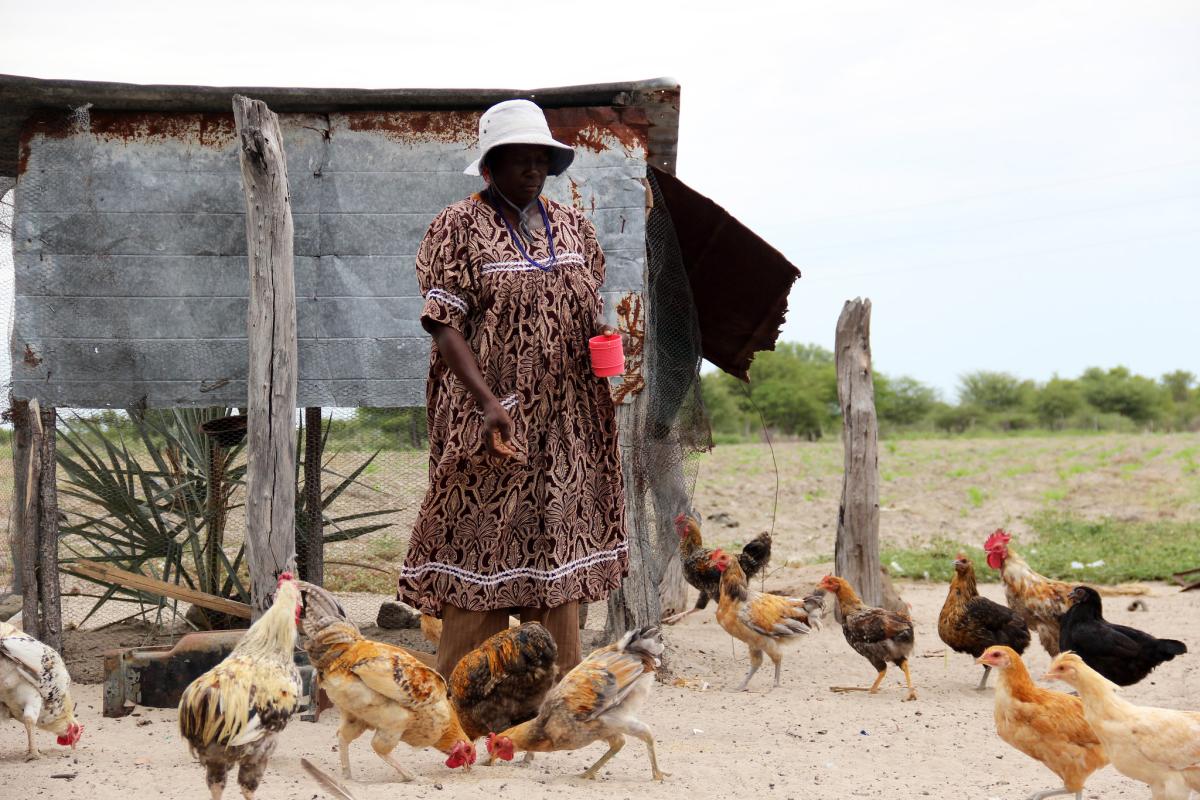
You are what your chicken eats
Safe livestock medicines for healthier agricultural produce: animal health management through wild plants
Since the onset of the Industrial Revolution, the use of wild-harvested medicinal plants in animal health began to decline as people turned to “conventional” medicine produced in a lab. This has seen a spike in negative effects on human health emanating from the consumption of livestock treated with antibiotics and other types of these so-called conventional medications. Add to this, and their high price tags, they have increasingly been linked to environmental damage and the exorbitant cost of animal production. What scientific knowledge currently exists on wild harvested plants and their medicinal properties in livestock production practices? Are there opportunities for commercialisation?
The resurgence of interest in the role medicinal plants can play in human health has gained traction in the last decade. However, using wild-harvested medicinal plants (WHMPs) to manage the health of agricultural animals has received less attention.
In celebration of World Health Day, we showcase innovative approaches demonstrating the harmony between economic development and environmental stewardship. A remarkable example is the commercialisation of medicinal plants as an agent in indigenous chicken health management. A study by Chidembo et al in 2023 in the "Journal of Medicinal Plants for Economic Development" probes the untapped potential of WHMPs in rural communities across sub-Saharan Africa, where traditional remedies play a pivotal role in controlling chicken diseases and parasites. Such practices are not only economically viable but also eco-friendly and adapted to local environments, offering human health benefits without the adverse effects associated with synthetic antibiotics.
It is also worth noting that herbs and medicinal plants are a source used in drug compounds, and emerging modern medicines and play a critical role in the conventional medicine revolution. Thus, WHMPs are an integral part of, and an important foundation in the development of medicines and a natural blueprint for advancing new drugs or phyto-medicine in controlling and treating livestock diseases.
The commercialisation of these medicinal plants presents a myriad of opportunities. Significantly, it has the potential to catalyse local economic development by generating income for communities that traditionally rely on this indigenous knowledge. They also offer alternative animal health and affordable medicinal options for the producer/farmers. Moreover, these practices are aligned with global efforts to reduce the carbon footprint and antibiotic resistance, highlighting their relevance in contemporary agricultural and health contexts. However, the path to commercialisation is fraught with challenges, including the absence of organised support systems and networks, the threat of unsustainable harvesting, clear criteria for supporting quality, protection, and presumed efficiency, as well as the complexities of market regulation.
Drawing on these insights, African nations can discover the value of integrating traditional medicinal knowledge with modern agricultural practices. There's an evident need for policies supporting sustainable harvesting, commercialisation, and protection of wild indigenous medicinal plants. Emphasising research, product standardisation, knowledge transfer, and establishing supportive networks can mitigate the challenges faced in commercialising medicinal plants for animal healthcare. Additionally, recognising and upholding the intellectual property rights of local communities over these resources is paramount.
The commercialisation of WHMPs for chicken health and animal health underscores the potentially symbiotic relationship between biodiversity conservation and economic development. It serves as a reminder to practitioners and scholars exploring similar initiatives across Africa of the need for research and support for the use of local knowledge and wild plants. It is also evident that environmental stewardship and economic viability are not mutually exclusive but are instead interdependent pillars of sustainable development.
Read more here:
Chidembo, R., Ndlovu, W., Mwale, M., Obadire, O., & Francis, J. 2023 Mar 8. Opportunities and challenges in the commercialisation of medicinal plants used in village chicken health management. Journal of Medicinal Plants for Economic Development. [Online] 7:1
https://jomped.org/index.php/jomped/article/view/175
We support the free flow of information. Please share:
More content
-

What Foot and Mouth Disease-free means for South Africa’s game meat trade
Ms Lydia Daring Bhebe…Explore the latest developments in South African provinces achieving and maintaining Foot and Mouth Disease (FMD) free status…
Articles -

The world wildlife trade regulator is 50 – here’s what has worked and what needs to change
Daniel Challender…Most countries implement Cites, the Convention on International Trade in Endangered Species of Wild Fauna and Flora as…Articles -

Enabling Sustainable Wildlife Trade
Prof Francis VorhiesEnabling sustainable wildlife trade is a key policy measure for growing Africa's wildlife economy. In this respect, CITES…
Articles -

Has CITES become too complicated to be effective?
Prof Francis VorhiesGovernments agreed to the text of CITES in the 1970s, which is quite straightforward. However, the agreement’s implementation…
Articles -

From poachers to providers: Can Africa's wild meat market save wildlife?
Dr Wiseman NdlovuHave you ever considered how wild meat could be more than just a cultural staple but also a…
Articles -

As a fellow of the African Wildlife Economy Institute (AWEI), I am excited to attend the upcoming 3rd…
Articles -

A theory of change to improve conservation outcomes through CITES
Dr Michael 't Sas-Rolfes…Here we articulate the implied theory of change (ToC) underpinning the design and operation of CITES (Convention on...
2025Research -

Wild Meat Value Chain Integration Systems: Opportunities for Value Chain Formalisation and Scaling in Africa
Dr Wiseman Ndlovu…Establishing a legal, safe and sustainable wild meat sector promises to potentially reduce demand for illegally sourced meat...
2025Research -

AWEI's 2024 Wildlife Economy Dialogue Series
Ms Emily TaylorRediscover 2024: A year of insight and inspiration
In 2024, AWEI proudly hosted three ground-breaking dialogue series in…
Articles
Get updates by email
Through impactful research, stakeholder engagement, and professional development, AWEI is supporting the wildlife economy across Africa. Please subscribe for occasional updates on our work and forthcoming events.
Sign up for a quarterly dose of AWEI insights
In a complex and changing world, AWEI generates strategic ideas, conducts independent analysis on wildlife economies, and collaborates with global scholar-practitioners to provide training and expertise for biodiversity conservation, climate resilience, and inclusive economic opportunities in Africa.

